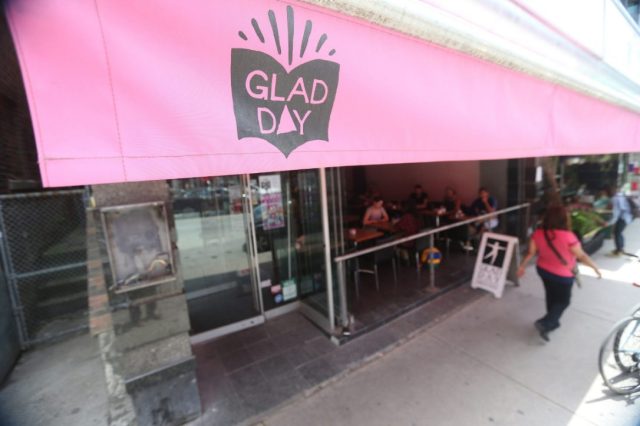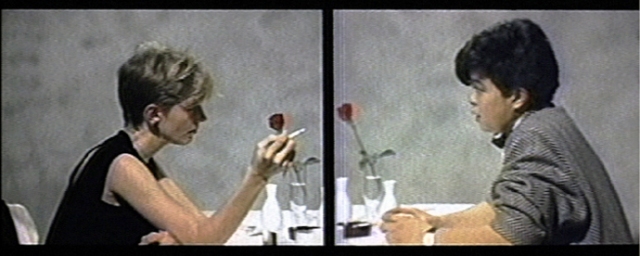
On the evening of April 10, 2018, the last art activist lab event took place at the Glad Day Bookshop. The night consisted of memory statements from many feminist activists from the second wave feminism to present day. I only a few of the artists as they were talked about in class, however, some of them was new to me. Each person spoke on their work and their own experiences that were involved with feminism and LGBTQ+ genres, but all together they brought some comical ques to the stage along with their stories. The night was lively and funny and I am glad that I was there to witness the events. Two people that stuck with me were Midi Onodera and Anna Willats.

The 1st scene from Ten Cents a Dance (Parallax) (Midi Onodera, 1985, Canada)
Originally my mom was the one who taught me to be open-minded. However, when I saw this film I thought, wow!, I don’t think my mom would have made it through this one. Knowing my mom I think it would have been new and shocking to her, even though she did watch 9 1/2 Weeks to the end. My following thought was that the film was about the challenges with communication among diverse people or discussions about sexual contact among diverse people. With a low budget overall, I think she nailed her goals with this film.
Anna Willats was another women speaker that intrigued my ears when she spoke. She expanded on her struggles in becoming a mother. She called her memory a time during the gayby boom? or gay baby boom? A play on words from the 60s baby boom. 🙂 During this time female same-sex couples were trying to get pregnant, and it seems many were lucky with there chances, however, for Anna and her partner it took them some time. Prior to the difficulties of insemination, Anna said that there were legal issues when same-sex couples wanted to adopt a child and even having the fear of getting the child taken away. That was heartbreaking for me as my one auntie is still looking for one child to this day from the 60s scoop of indigenous children. Despite Anna’s roadblocks herself and her partner were able to find a solution to their problem. Going through a search of an expert on at home insemination and sperm donors within the city of Toronto took a lot of work so that way they would have children. Finally, in the end, the hard work was paid off. I felt happy that she was able to start her family. What interested me in her dialogue was the history behind all of the laws against same-sex couples in the 1980s. I would have never known these laws if it weren’t for this speaker series.
The history of all these amazing women is rich and alive. I enjoyed this event the most out of the other collectives. This one was a very nice way to end my first semester in university. The intersectionality was real with the Speaker Series!